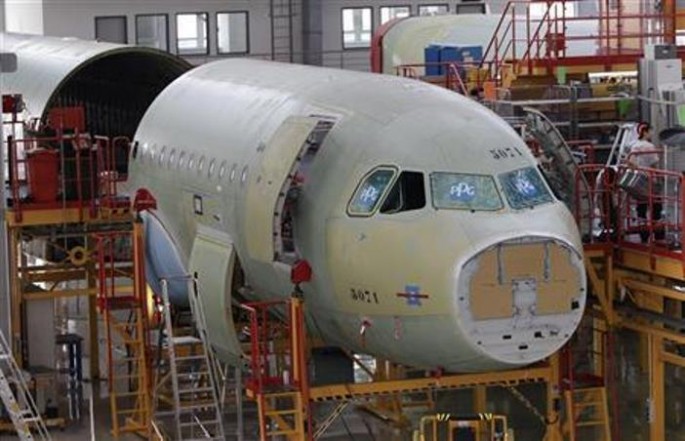Europe's largest aircraft manufacturer Airbus has begun construction on Wednesday, March 2, on a new facility to deliver wide-body planes in China, challenging U.S. rival Boeing for market share in the country, the Global Times reported.
Airbus CEO Fabrice Bregier and Chinese officials attended the official ground-breaking ceremony in the northern port of Tianjin for the Completion and Delivery Center, which is expected to produce two A330s a month. The center is an expansion of the company's existing final assembly plant for A320 single-aisle aircraft in the city, the report said.
Although the country is experiencing a slow economic growth at its weakest and bleak outlook, Bregier said that "this is not true for our market," adding that Chinese air travel is in boom, driven by increased middle-class incomes and loosened visa rules.
As Asia's biggest aircraft buyer, China has a growing middle class that travel by air in ever-increasing numbers. It is expected to have 1.7 billion air passengers by 2034, and become the largest civil aviation market in the world in the next two decades.
Bregier said the new $150-million center "marks a new milestone for Airbus' international footprint," as it is the company's first facility for wide-body aircraft outside Europe.
The company said that flyable unpainted aircraft will be taken from their headquarters in Toulouse, France, and cabins, furnishings and paint will be added, before they are delivered to customers.
On the other hand, Boeing announced last year that it will open a completion center in China. In 2015, the company sold 300 aircraft worth $38 billion during President Xi Jinping's visit to the U.S.
The two firms have been competing for market share in China, with Airbus taking 27 percent of shares in 2004 (before it opened the Tianjin final assembly line) to roughly 50 percent at present.
China is now Airbus' largest market, accounting for nearly a quarter of the planes it delivered in 2015, the report said.
Air China announced orders for 12 wide-body aircraft for $2.9 billion, days before the ground-breaking ceremony.
As an important component of an advanced economy, China prioritizes the development of its aerospace industry. Aircraft manufacturers also invested in new plants to increase production and win the approval of the government, which controls the airline industry.
"Our industrial cooperation serves a purpose, and that purpose is to facilitate our sales . . . to China," said Andreas Ockel, general manager of the Tianjin assembly facility. "It's a give and take."
The Airbus A320 assembly plant is a joint venture, with Chinese stakeholders having 49 percent control, while the European firm has joint operations with partners across China manufacturing doors, wings and other parts for A320 family aircraft.



























